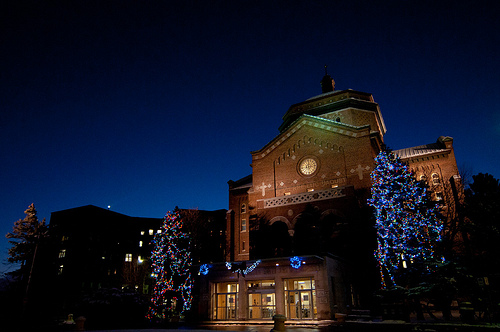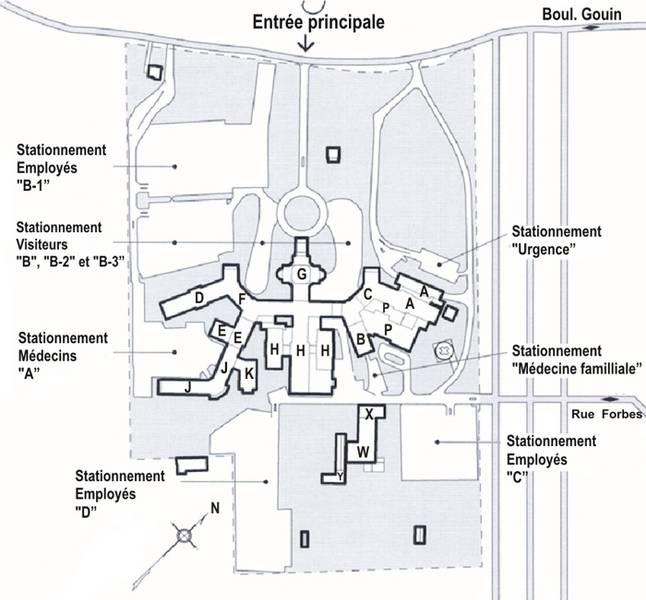Hôpital du Sacré-Cœur de Montréal

Description
The Hôpital du Sacré-Cœur de Montréal is a hospital in the Cartierville neighbourhood of Montreal, in Quebec, Canada. It is one of the largest teaching hospitals affiliated with the Université de Montréal, and one of the largest hospitals in Quebec.
History of the Hospital
In downtown Montreal on June 1, 1898, the day of the Feast of the Sacred Heart, a group of women founded a small hospital named Hôpital du Sacré-Cœur de Montréal to care for a dozen ill individuals deemed the "incurables".
In 1902, the administration of the hospital was entrusted to the Sisters of Providence, and a new building with 375 beds was built on Décarie Boulevard; it was known as Hôpital des Incurables. The building was destroyed by fire in March 1923, and in 1926 a new building was constructed on Gouin Ouest Boulevard in Cartierville, where it still stands today. With the new building, the administration reverted to using the original name, Hôpital du Sacré-Cœur de Montréal.
The new hospital was initially focused on the treatment of tuberculosis. Considered a sanatorium, it became an important teaching hospital for pulmonary illness. In 1931, Édouard Samson founded the orthopedics department, which eventually became the largest trainer of orthopedic surgeons in the province of Quebec.
In 1973, the Hôpital du Sacré-Coeur de Montréal was affiliated with the Université de Montréal to teach medicine and health sciences to students in a hospital setting. During the same year, the Albert-Prévost Institute merged with the now ultra-specialized hospital center to become a pavilion dedicated to users requiring psychiatric care.
